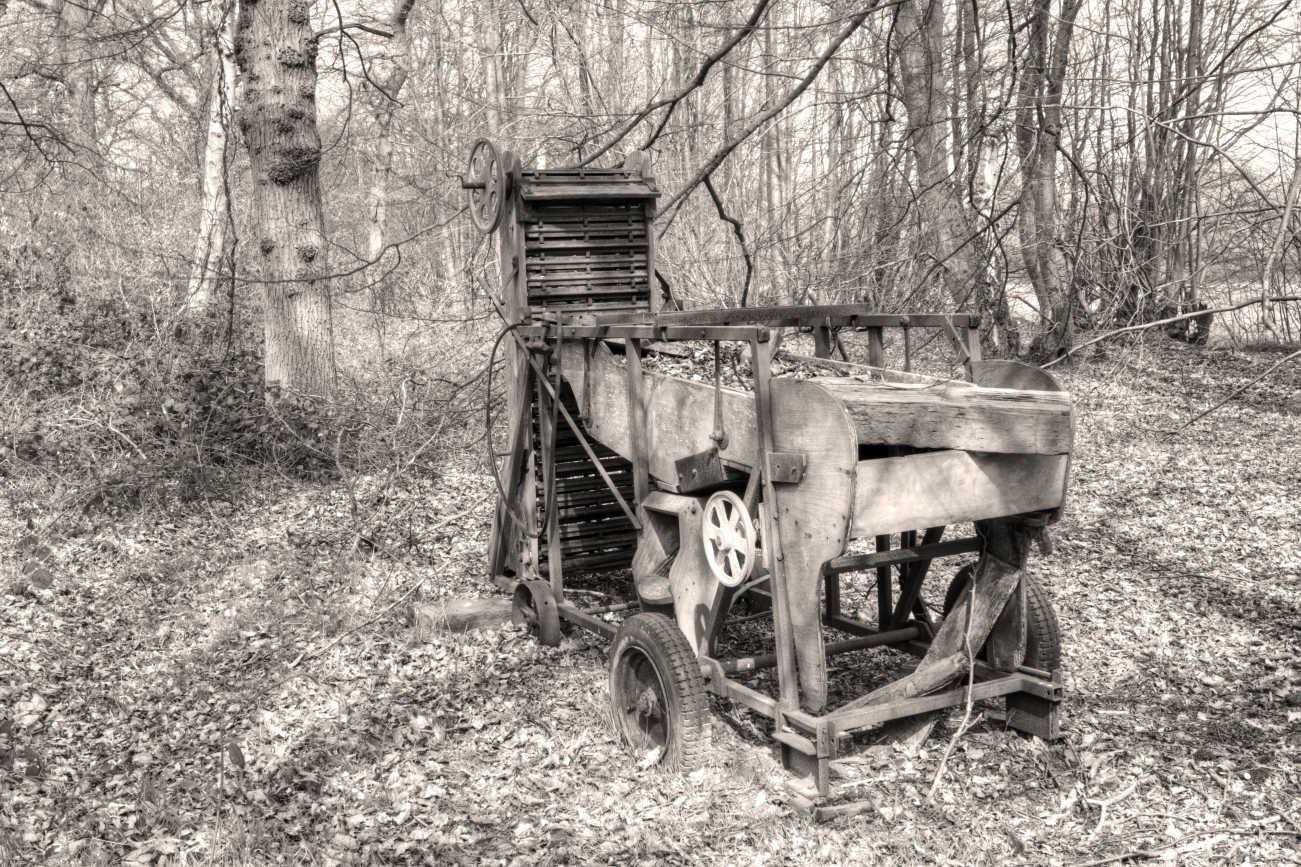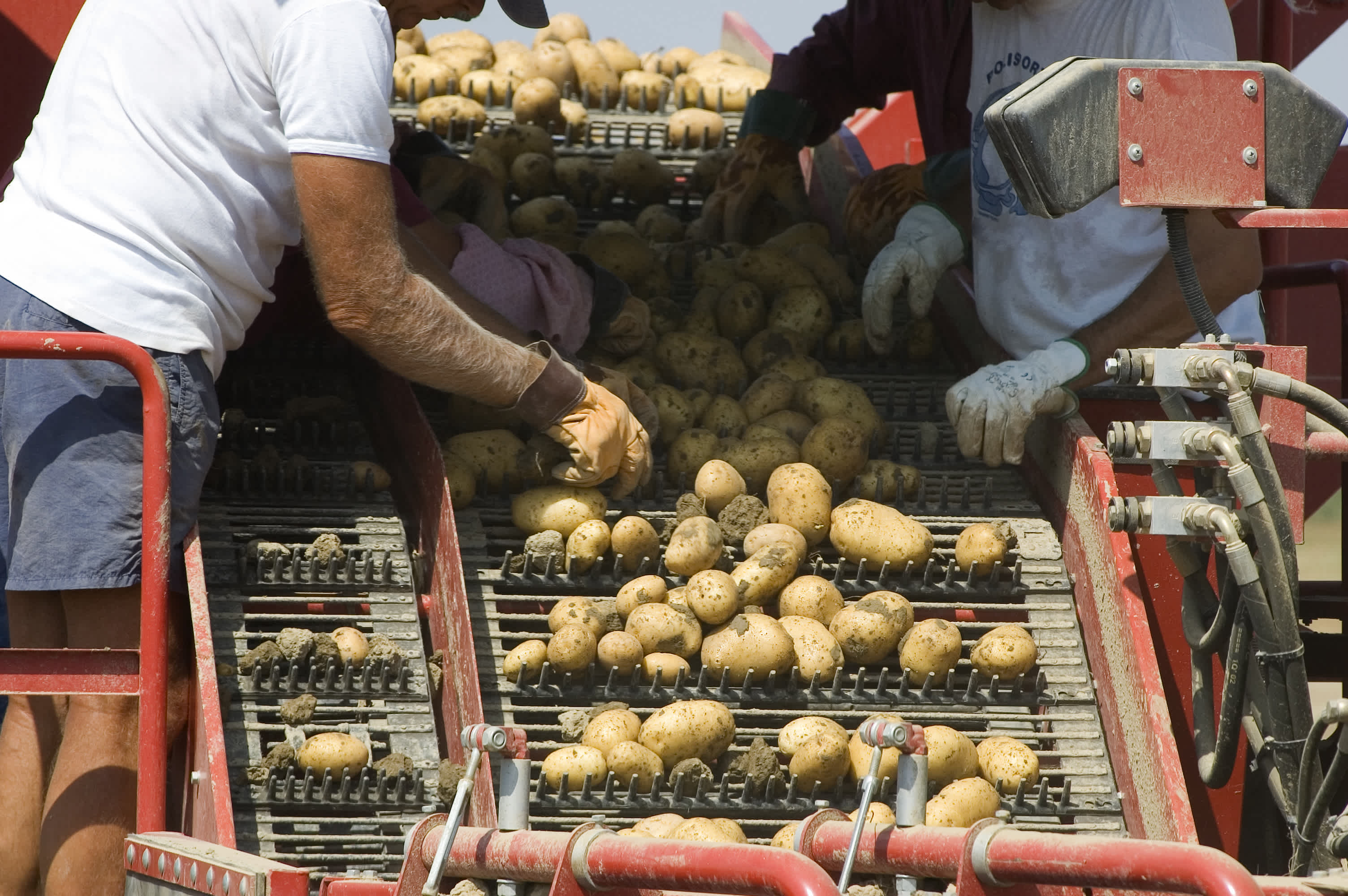The History and Future of the Potato Sorter
The Potato Sorter.
Before AI and robotics, in the potato sorting industry, humans were tasked with rating the quality of each potato. The potato sorting job was a laborious, time-consuming task that required much effort. This article highlights how far we've come a long way from hand-sorting.
"Potato sorter" has been an actual job in the United States since the start of the 20th century.
The job entails packing hand-sorted potatoes into boxes and shipping them across the country. Potato sorting, also known as , jobs don't require highly-skilled labor and therefore wasn't lucrative; most sorters from the early 20th century made less than $150 a month (less than $1,650 today).
Fast forward to the industrial revolution, when machines replaced repetitive, laborious tasks.
One of the oldest machines (thought to be from the 1930s) is on display at the , right next to Dorothy's ruby slippers.

What is a potato sorting job?
Before the entry of conveyer belts and simple machinery, the potato sorting job entailed hand-sorting potatoes into boxes ready for shipment. Sorters would search through piles of potatoes, removing any that were discolored or too small or large for customers to buy. It was essential for potato sorters to have good eyesight and coordination but also be able to work quickly.
Even at the start of implementing machinery into the potato processing line, humans were still vital to sorting and grading the product. The workers would stand at a conveyor belt hand-sorting potatoes to make sure rocks or other foreign objects haven't made it into bags destined for grocery stores or restaurants.
To this day, potatoes are still in high demand in America for retail, food production, and beyond— and the demand isn't slowing. So the need for increased output, efficiency, quality control, and speed is more crucial than ever in this industry. Technology and AI have evolved to meet these demands.
So, is the potato sorting job becoming obsolete for human workers today?
The Potato Sorting Job in 2022 and Beyond
In the 1790s, 90% of the labor force was in agriculture. In 2018, less than 2% of the U.S. population was in agriculture. reports that the potato sorting job and agriculture processing jobs, in general, will see a 1 % decrease from 2022 to 2030. While it remains a lower-paying job, advancing technologies in potato grading have been invented to lower these labor costs.
Will Machines Take Over the Potato Sorting Job?
The market for industrial potato graders is growing, and machines are replacing human labor. The is expected to reach USD 4,024.67 million by 2027, at a CAGR of 7.74%.
With that said, humans still are and will be relevant in the agricultural industry!
Just as the entire industry has evolved since the 20th century, the role of human labor continues to change. And it includes working alongside technology.
READ MORE:
Automation of the potato sorter machine for the future
Examples of the machines and technology that improve the quality and speed of your potato processing line are:
The Bantam Grading System:
Bantam Vision provides a best-in-class artificial intelligence and machine learning solution for grading and potatoes. This grading system is integrated with a potato warehouse's current carrier system and offers significant cost savings and increased revenue for fresh potato packing companies.
Newtec: Celox-P-UHD optical sorting machine
The optical sorting machine from Newtec can sort potatoes by size, shape, and quality in a single stage without needing pre-grading or manual labor, ensuring consistent quality and high output.
The future is upon us.
Automation and AI have decreased the amount of labor needed in agriculture, causing jobs in the industry to decline. However, new jobs are rapidly rising in other sectors that support the potato sorting job, like the tech industry. Technology and humans will work together along the production line, depending on one another to deliver the highest quality product for consumption.
Ready to increase the quality of your potato grading process while cutting labor costs?
